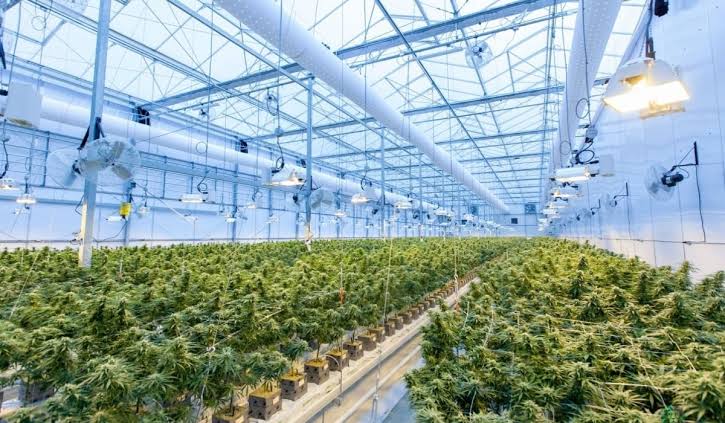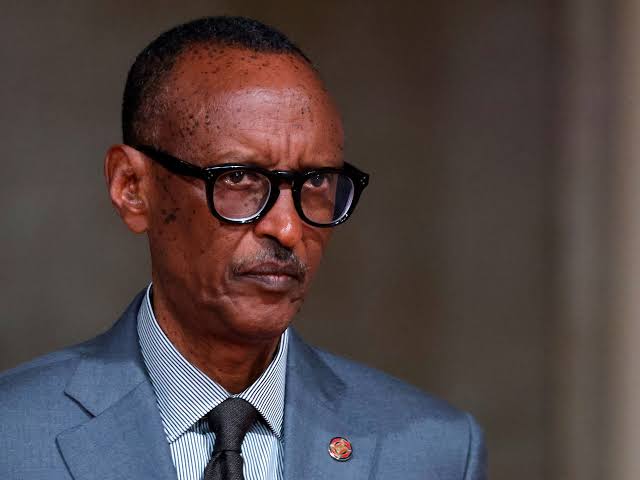
Faith Nyasuguta
Rwanda is nearing completion of East Africa’s first state-owned medical cannabis refinery, with the facility now 83% complete. Although initially slated to launch in early 2025, operations have been delayed, with the government now expecting to begin production later this year. The facility will focus exclusively on exporting medical cannabis to markets in the US, Canada, and Europe.
The facility, entirely financed and owned by the Rwandan government, marks a bold and calculated move into the lucrative global cannabis industry. Once complete, the refinery will focus solely on producing medical cannabis for export to international markets, including the United States, Canada, and several European countries where cannabis for medical use is legal and demand is high.
To date, the government has invested approximately $10 million into the project. This funding covers machinery, construction of the facility, procurement of high-quality imported seeds, and licensing fees. Rwanda’s Health Ministry confirmed that no cannabis will be produced for local consumption at this stage. Instead, the focus is strictly on positioning Rwanda as a serious global player in the medical cannabis export market.

The project not only places Rwanda at the forefront of the cannabis trade in East Africa but also makes it the second African country to own and operate a cannabis refinery. Zimbabwe holds the distinction of being the first on the continent to do so.
The Rwanda Biomedical Centre (RBC) and the Ministry of Health are overseeing the project’s progress, ensuring all operations adhere to stringent health and safety standards as required by international buyers. Officials say the facility is being built to meet global pharmaceutical-grade requirements, allowing Rwanda to tap into one of the fastest-growing segments of the medical and wellness industries.
“Medical cannabis is a highly regulated industry with great economic potential,” a senior Health Ministry official said. “By entering this space early and with full government ownership, Rwanda can ensure quality, safety, and full control over export standards. We are laying the groundwork for a sustainable export business that will contribute significantly to our national income.”
Rwanda’s approach also reflects a broader trend of African nations rethinking cannabis regulation not just from a health standpoint, but through an economic lens. With more than 50 countries globally legalizing cannabis for medical use, demand continues to rise for high-grade, traceable cannabis products. This shift has opened opportunities for African nations with ideal climatic conditions and available land to become major suppliers.

Although cultivation of cannabis for recreational use remains illegal in Rwanda, the country passed legal provisions in 2021 that allow for the controlled growth and export of cannabis for medicinal purposes. The law also mandates that any licensed operation must be tightly regulated, with 24/7 surveillance and security measures in place to prevent local misuse.
So far, Rwanda has not announced whether it plans to open the sector to private investors or keep the entire supply chain under government control. However, the success of the initial state-run refinery could determine the direction of future cannabis policy in the country.
According to global forecasts, the international medical cannabis industry is expected to be worth over $55 billion by 2027. Rwanda’s entry into this market is seen as both strategic and timely.
Economic analysts say that if Rwanda can maintain product quality, regulatory compliance, and export efficiency, the country could become a key supplier of medical cannabis, particularly to markets with high import needs and strict quality standards.

The completion of the refinery will mark a milestone in Rwanda’s ambitions to diversify its economy and capitalize on emerging global industries. Beyond revenue, the initiative is also expected to create jobs in cultivation, quality control, logistics, and lab research, making it a multi-sectoral economic booster.
As the 2025 launch approaches, all eyes will be on Rwanda to see how it executes this pioneering venture – and whether it will inspire other African nations to follow suit.
RELATED:








